Parenting
10 Signs that Child Discipline Has Gone Virulent
Discipline is a gift that we give to our children that turns nobodies into somebodies. However, disciplining our children can quickly get out of hand and become abusive. In this piece, we explore various ways that disciplining our kids can go overboard. Please read all about it.
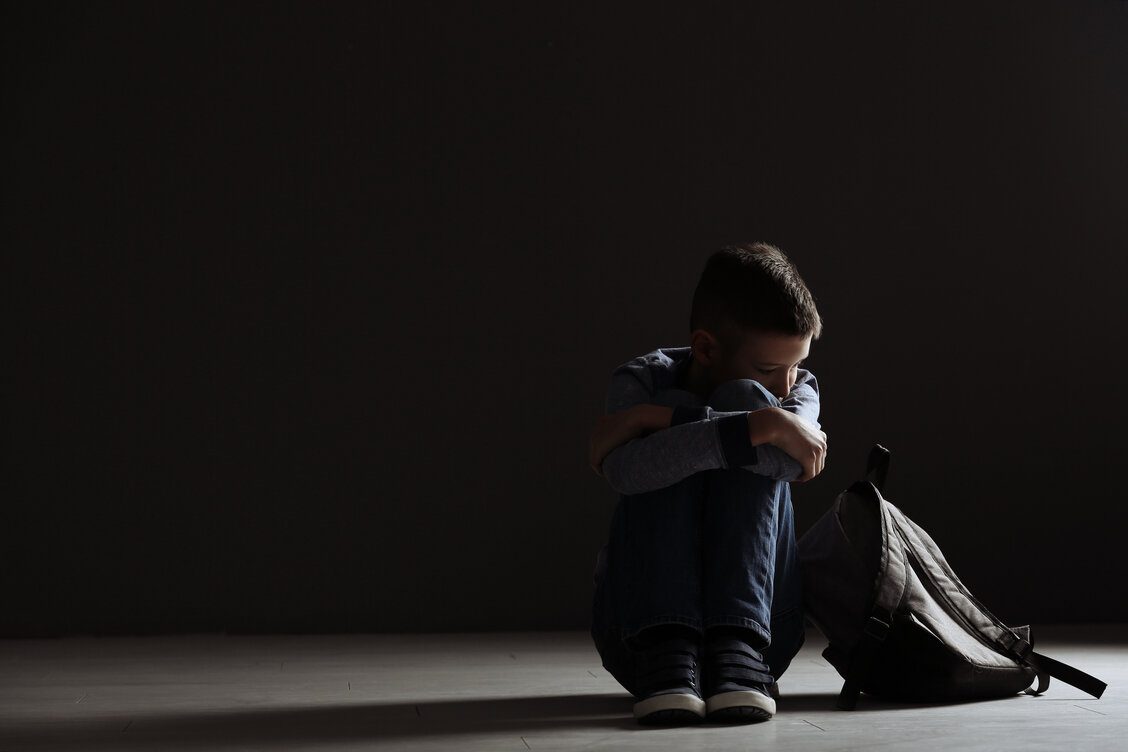

Nature thrives on balance and moderation; when you disrupt that balance, all hell breaks loose. Too much of anything can interfere with its natural course, as well as too little of it. Therefore, the excessive disciplining of a child can cause harmful disruptions in their life. In far more cases, parents guilty of this don’t realize the consequences of their overzealousness in imposing discipline on their wards. In fewer cases, the parents don’t know that they’re over-disciplining their child; hence, the need for balance and moderation.
“Home is, I suppose, just a child’s idea. A house at night, and a lamp in the house. A place to feel safe.” — V. S. Naipaul.
Ultimately, we must educate ourselves about the difference between right and wrong discipline. The Trinidadian-American actor, dancer, musician, and artist Geoffrey Holder once said that “Education begins at home. You can’t blame the school for not putting into your child what you don’t put into him.” There are ways to know that you are going overboard. We must learn when to stop and retrace our steps before we do irreparable damage that we would end up regretting. Parents must be honest with themselves and determine whether they have gone overboard. This way you’d be able to make improvements.


Consider this piece as a freebie in helping you add value to your mind when disciplining your ward and child upbringing. Some people raise their kids the best way they know how to or mirror how their parents raised them. The strategies they deploy may be wrong, but they stick with what they know. So, consider this piece as an avenue for you to stretch the horizons of your knowledge as a parent. You should be ready to make changes where necessary. Should the need arise, you may need to meet with a child psychologist or therapist to wade into an already dire situation. Whatever it takes that is positive to make the necessary corrections must become the answer.
You may have to humble yourself to the point of accepting honest feedback from your children without being arrogant or bossy about it. Some parents find it challenging to be humble when corrected rightly by their wards. Children are very good at observing—they soak up information like a sponge or preferably Sodium Polyacrylate, the water-absorbent material in paper diapers. They learn more by watching what the adults and peers around them do. When a parent disregards their opinion, feedback, or contribution, they take a cue from this and subconsciously learn that their views are unnecessary.
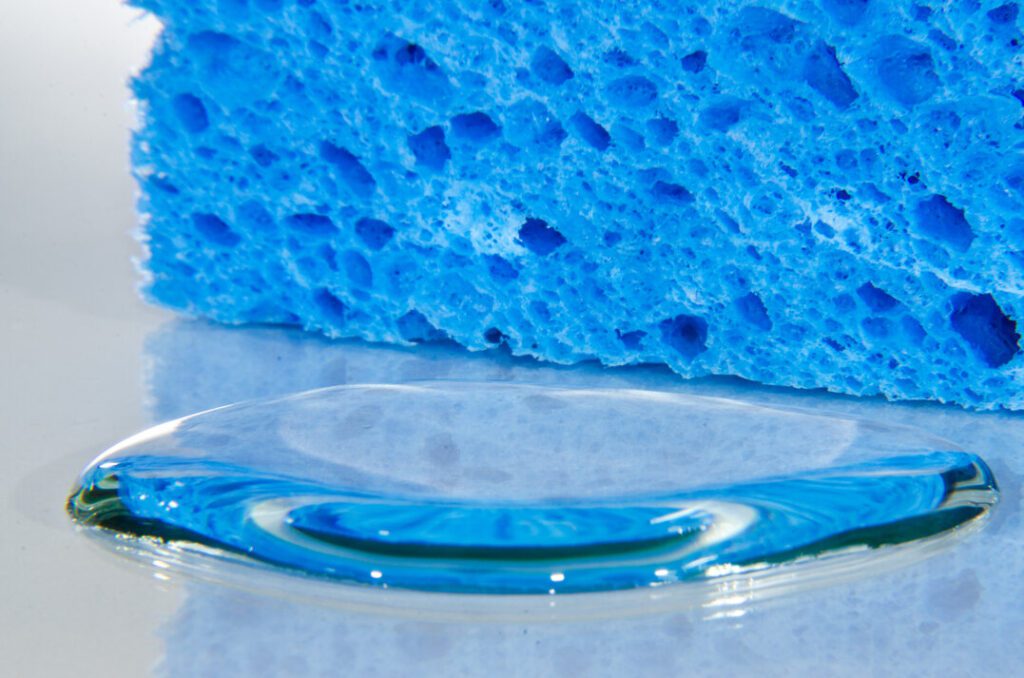

While this may not always be the case, sometimes, children are forced to view things via this perspective because they live in an atmosphere where silence thrives. Parents should learn to communicate clearly with their children. Instructions should be given out of love and not out of anger. Parents must maintain a high level of emotional intelligence at all times when dealing with their wards. Doing so will bar parents from venting their annoyance on their innocent children who may know nothing about what they are doing.
10 Signs that Disciplining Your Children Has Gone Overboard
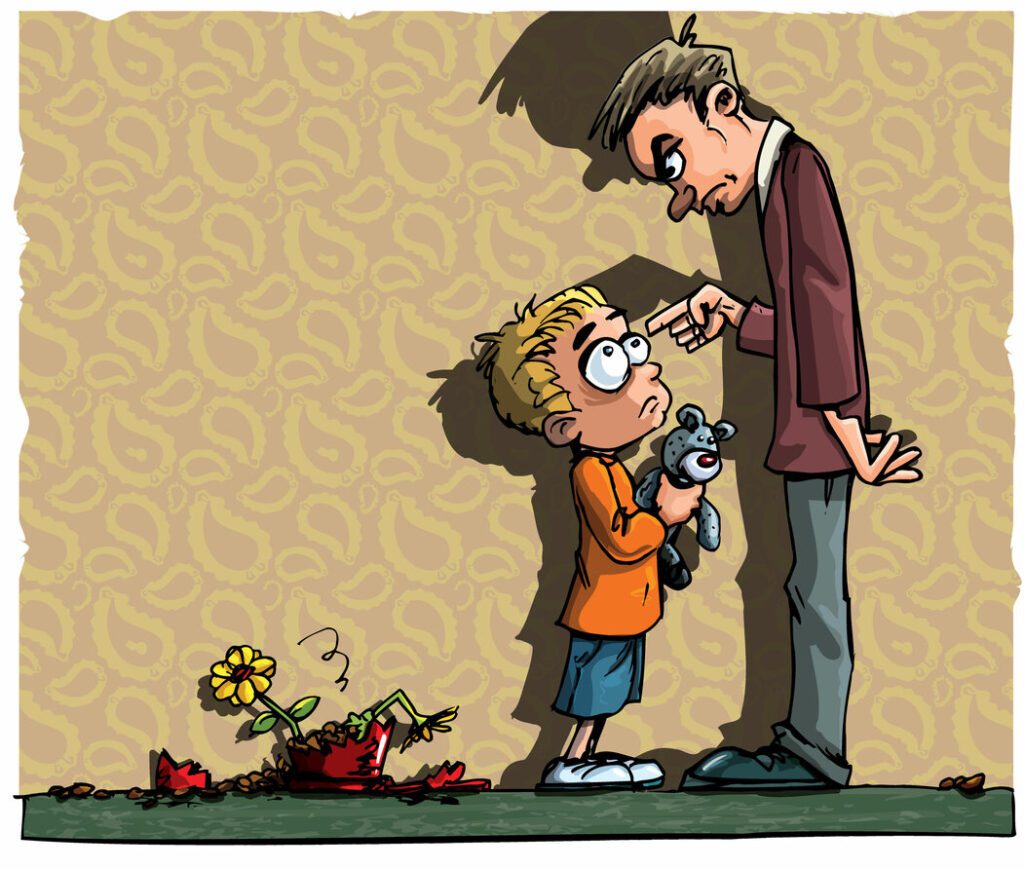

Some people hang on Proverbs 13:24, which says in the New Living Translation that “Those who spare the rod of discipline hate their children. Those who love their children care enough to discipline them.” There is often a misinterpretation of this verse to mean that physical punishment is the only way to discipline a child—that is not true. A Crosswalk.com study by Kyle Blevins, does a great job expounding this verse.
“Those who spare the rod of discipline hate their children. Those who love their children care enough to discipline them.” — Proverbs 13:24.
The rod does not solely mean instilling discipline via spanking alone; far from that, to be honest. The rod leans more on instruction, teaching kids via guidance and appropriate discipline as the occasion demands. It is more of a process of positively influencing behavior in children, not about punishing them, as many parents erroneously believe. The proper act of discipline should be constructive and never destructive. Solely physically punishing your child will eventually destroy them psychologically. Good discipline should cultivate self-discipline that makes them better. It makes them grow into well-rounded adults who are emotionally and socially stable.
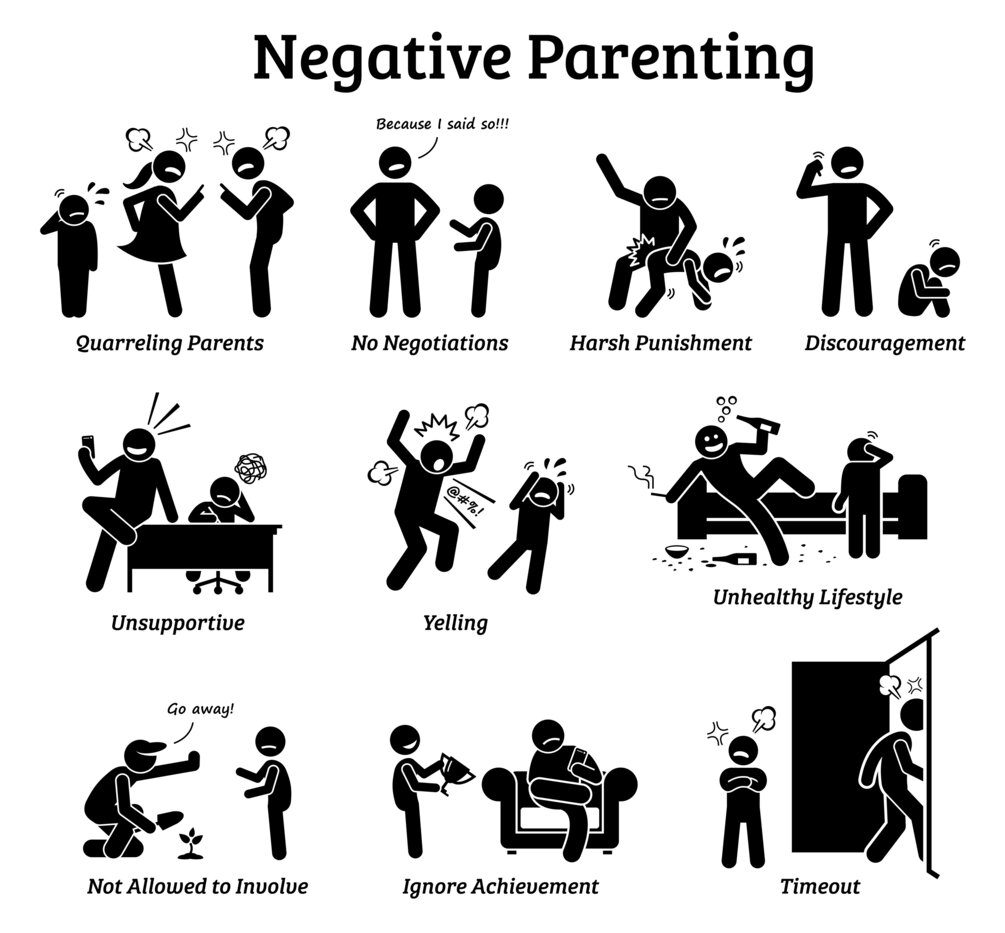

Child discipline that has gone overboard is a sign of negative parenting. You see this evidence when parents constantly fight or quarrel, entertain no negotiations, dishing harsh punishments, speaking down on their wards, being unsupportive, continually yelling, indulging in an unhealthy lifestyle, etc. An unknown author once said that “If a child lives with criticism, he learns to condemn. If a child lives with hostility, he learns to fight. If a child lives with fear, he learns to be apprehensive. If a child lives with pity, he learns to feel sorry for himself. If a child lives with jealousy, he learns to feel guilty…” All that is stipulated here are all products of negative disciplining of children.
However, on the split end of this spectrum, this same unknown author stipulates that “If a child lives with encouragement, he learns to be self-confident. If a child lives with tolerance, he learns to be patient. If a child lives with praise, he learns to be appreciative. If a child lives with acceptance, he learns to love. If a child lives with approval, he learns to like himself. If a child lives with recognition, he learns to have a goal. If a child lives with fairness, he learns what justice is. If a child lives with honesty, he learns what truth is. If a child lives with sincerity, he learns to have faith in himself and those around him. If a child lives with love, he learns that the world is a wonderful place to live in.” Disciplining your ward should be a guide to achieve these grand ideals.
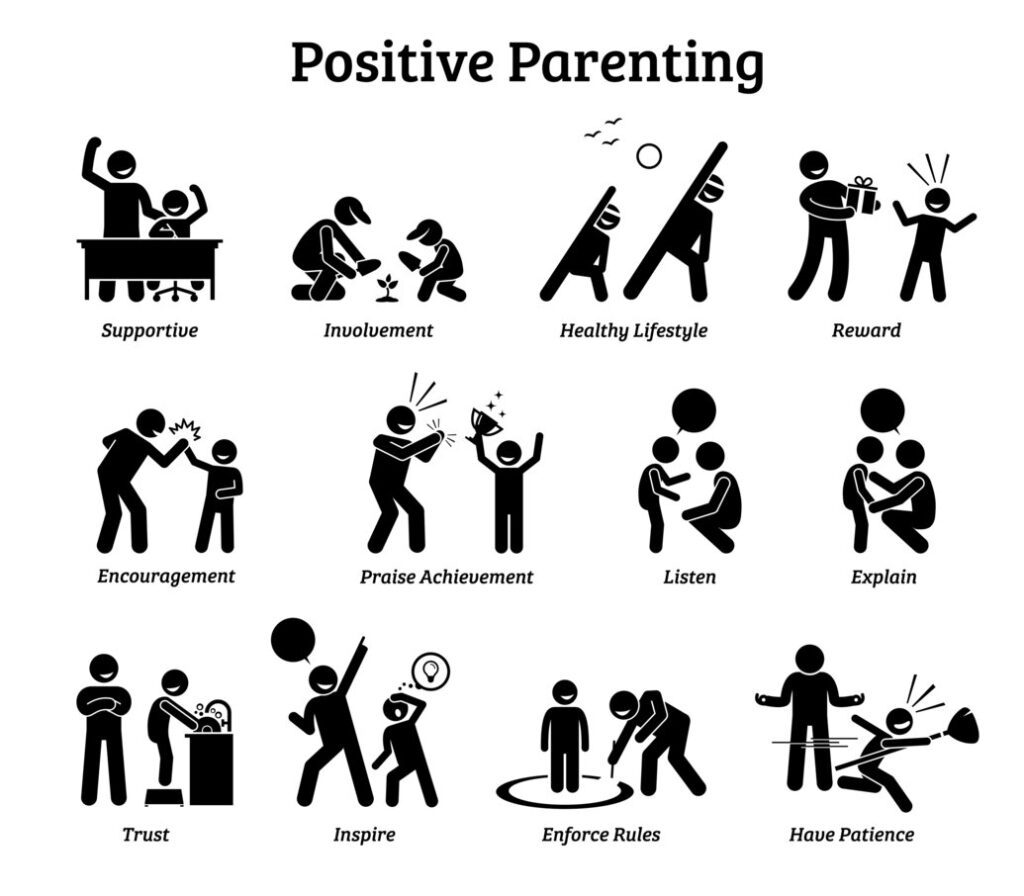

The ability to catch yourself when you are straying from positive parenting is very crucial. That is the core of this piece on discipline, especially when it has gone south and overboard. In the words of Gabriela Mistral (pseudonym for Lucila Godoy Alcayaga), the late Chilean poet-diplomat, educator, and humanist, “Many things we need can wait. The child cannot. Now is the time his bones are formed, his mind developed. To him, we cannot say tomorrow; his name is today.” Today, if you have gone overboard in meting out discipline, there is still a scent of hope. So, let’s look at some of the signs that show that punishment in child upbringing has gone overboard.
#1. You Don’t Give Your Children Room for Expression


Kids are expressive. You want to give them the chance to be themselves as you raise them. Although it is common knowledge that children are inexperienced in so many life matters, it is still relevant to give them the chance to express themselves. When you are too strict on your children, it could lead to them becoming bottled up, and they wouldn’t want to speak up again. Several research and studies have shown that strict parenting produces children who become adults with behavioral problems. Indeed, this isn’t what you’d want for your children, or is it? Think long and hard on this and make a change before it is too late. Give them some room to express themselves.
#2. When You Over Threaten Your Child
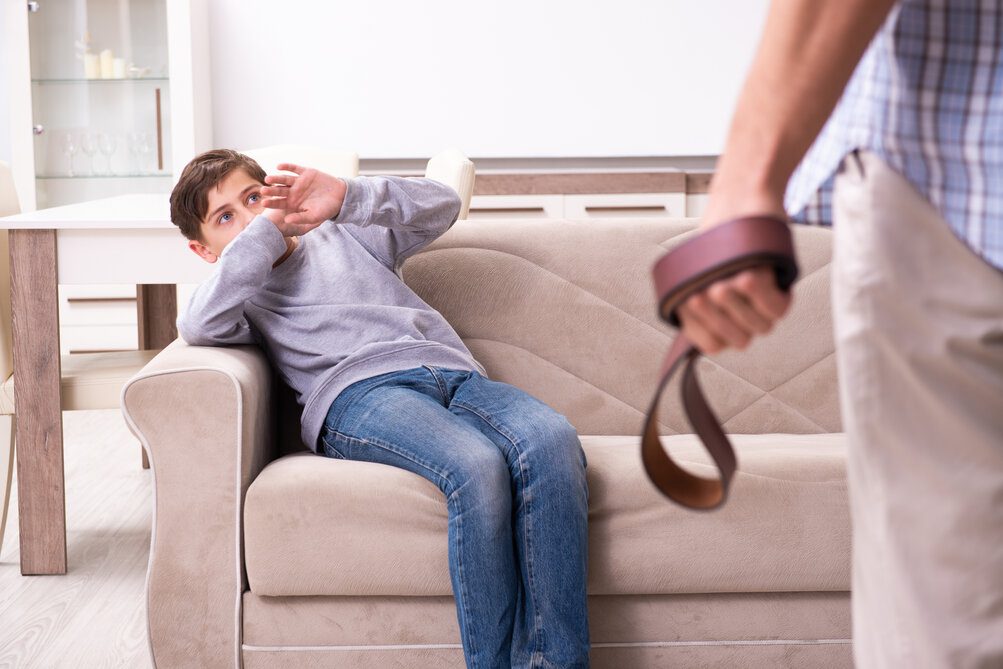

How many times have you or someone you know threatened a child that you’d do something nasty to them if they failed to comply? Without knowing it, you are teaching your child to misbehave. Constantly threatening your ward can harden them. The child gets used to the threat and ends up saying to himself, “After all, what is the worst thing that could happen if you follow through with your threat? Hit me? Oh well, I am already used to that,” alluding to the fact of the parent’s habitual threats and actions. For such a child, they’re no longer bothered about the dangers and parental hostility because it has become a pattern for them. A better way of speaking to kids is via a calm and gentle tone and language choice. The core is gentle guidance that speaks to the heart of their subconscious. That will make the most impact, ceteris paribus. A word is enough for the wise.
#3. Intruding into Your Child’s Personal Life
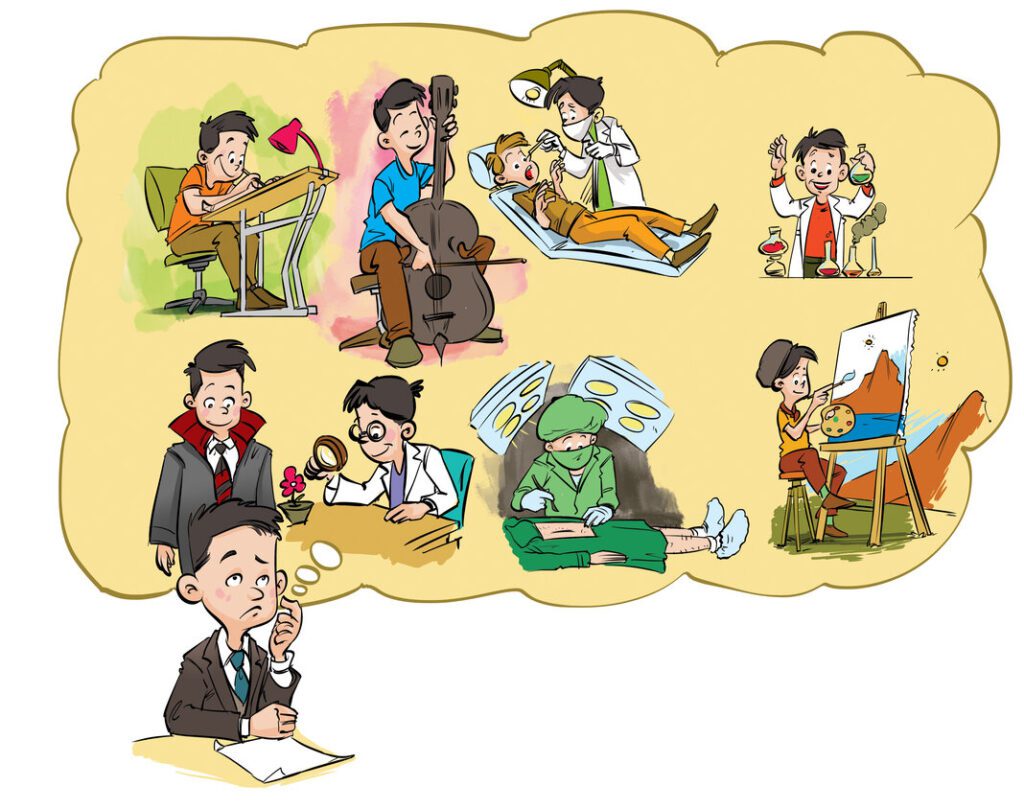

Children grow to become teenagers and then youths and consequently are young adults before they morph into other phases of human existence. Their growth comes with a new sense of responsibility and maturity. For instance, telling a child that they must study medicine, or a particular course of study is the wrong way of doing things. Children want someone who listens and understands them. They should have some sense of independence and freedom of choice. The worst thing you can do to your ward is to rob them of their sense of choice and autonomy. If they don’t get this from their parents, they won’t feel accepted. Curb your excesses, give them some breathing room to be themselves.
#4. Excess Do’s and Don’ts
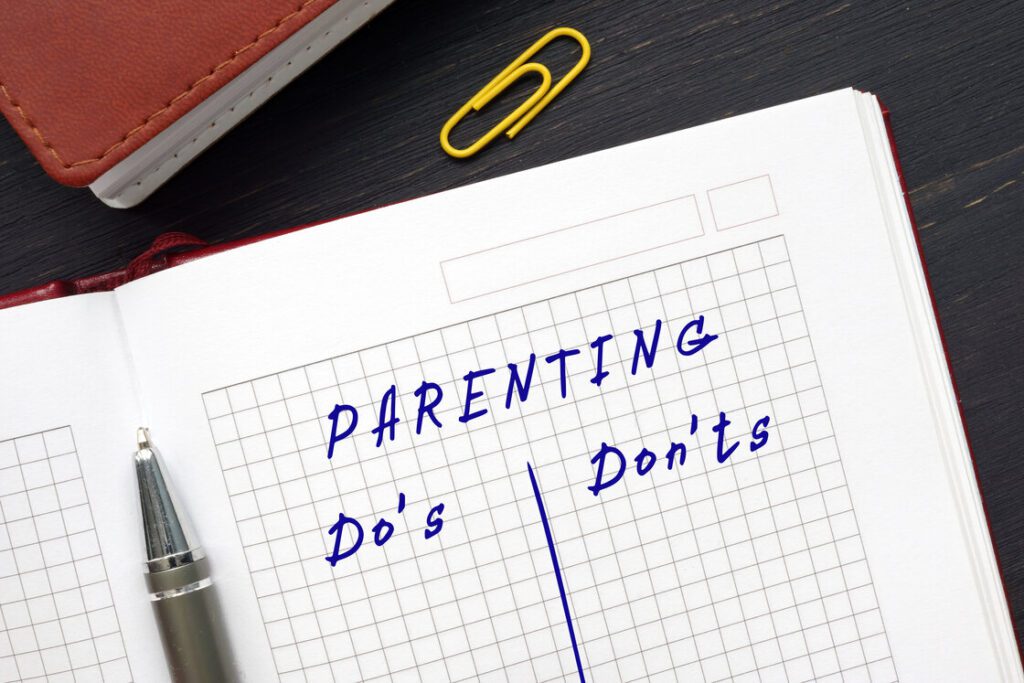

When you make too many rules, it can lead to information overload. The art of imposing too many restrictions—excess dos and don’ts—comes from an authoritarian perspective—an anaconda leadership style. It is very constricting and stifles the psychological life out of its victims. While this is something that can affect adults significantly, think about the repercussions of this on kids. One of the problems that can come from setting so many do’s, and don’ts is that you find it difficult to follow through on kids to know whether they’re keeping to those rules. When you notice this sort of pattern in your approach to parenting or notice it in other parents, it’s mostly a sure sign that discipline has gone overboard. Taper down on being too restrictive. Give your kids some breathing room just to be themselves.
#5. Not Being Available
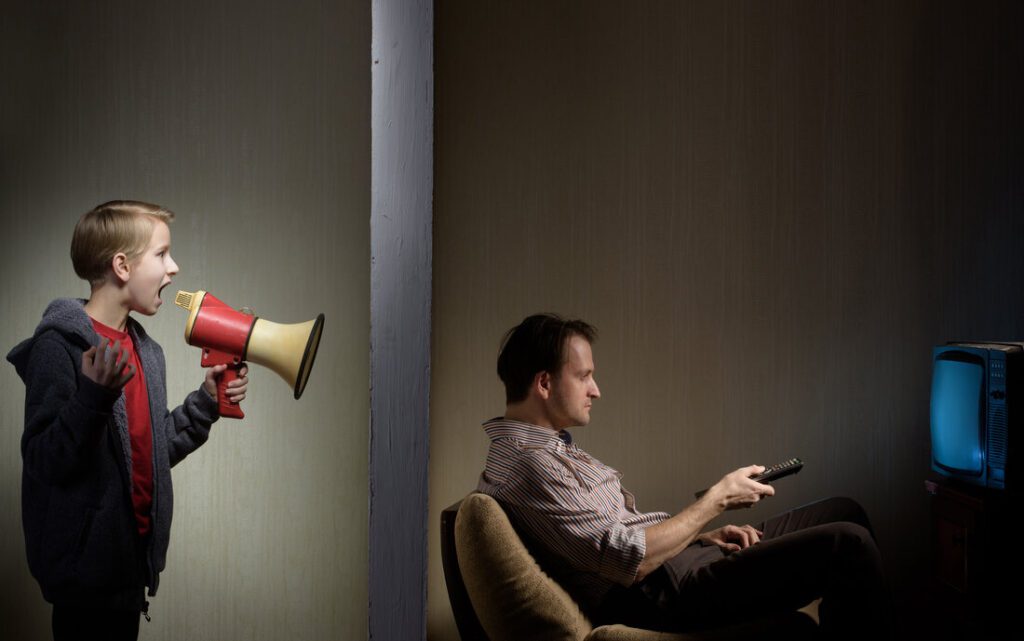

Not being available for your children has a way of affecting their inner core. It may lead to a sense of displacement in some children. It may make the child feel unloved. When parents become autocratic in issuing orders to their children, they will find it challenging to comply with particular instructions, as we stipulated in the previous paragraph and point above. Are you the parent who always shouts at your children? And yet you don’t make out time to be there for them! Such children will never confide in you. They will drift away from you and find other people they will confide in, which is never a good sign of positive parenting.
“At the end of the day, the most overwhelming key to a child’s success is the positive involvement of parents.” —Jane D. Hull.
Not being available could mean that you are never there at pivotal moments in their lives. You hide behind the cloak of always working. Because of this, you never attend their school functions that require their parents to be there. You are never there to assist them with their homework. Even when you are home, you never have their time because you are now a victim of Mobileholism—your life permanently revolves around your mobile phone and other handheld devices. You are never present; you are not there in their lives as their childhood quickly passes by. These become lost moments as you end up losing your kids to the confidence of other adults or peers. On many occasions, the influence they get is not always positive. Please pay attention to your wards, do not neglect them. Be present!
#6. Always Monitoring Your Child


Do you often monitor your child’s every move? You always want to know all your child’s friends, where they go, what they do and shouldn’t do, etc. You are overbearing and constantly in their business. You scarcely give them room to learn some sense of independence or discover their individuality. We call such micromanaging parent the helicopter parent. While these things show that you are concerned as a good parent, they can also scare away your child. Children, because they are humans just as adults, also deserve some form of space. However, the kind of space they need isn’t as big as that of an adult.
“Now that I have kids, I’m probably more overprotective than I’ve ever been. My wife’s nickname for me is ‘red alert.’ I sometimes check just to see if the kids are breathing. But I try not to be a helicopter parent.” — Matt Damon.
For instance, while it is good to know your child’s kind of friends. However, it is wrong to prevent your child from having any friends in your neighborhood. Caging them in could be because of the assumption or actual knowledge that most kids in that community are a terrible influence. Or, you may feel that other kids may not come from a privileged class like yourself or whatever excuses you decide to give. As much as there may be wisdom in censoring community relationships, human beings are social creatures—we want to forge relationships with others. No child or human being, for that matter, loves isolation. Children do better in their Education when they have the chance to socialize and play with their friends. Don’t incarcerate your kids to the social cages of lonesomeness.
#7. Is Your Child Withdrawing from You?


We always teach our kids not to talk to strangers, which generally makes them withdraw from people they don’t know. However, it is another thing for children to remove themselves from the parents of their parents. In the latter, it could be that the parents are too strict on the child or children. They don’t allow the child to have friends, speak up, express themselves, and open up on things he’s going through, and so on.
Some parents often spiritualize things in their homes. They teach their children to commit all their problems to God in prayer without striking a balance. That is all well and dandy. However, parents are part of the agents of an answer to a child’s problem. Children should be free to discuss whatever they truly feel with their parents. The validation of their ward’s feelings is part of the answer to those issues. Parents must take proactive steps to address those issues as it builds a deeper child-parent bond of confidence.
#8. Your Kids Don’t Want their Friend’s Home


One of the things that can affect a child’s behavior negatively or positively are actions or inactions that hit at their self-esteem. For instance, when a parent shouts at a child before their friends, they feel awful. Such a child wouldn’t want his friends to come home, or on the other hand, his friends wouldn’t want to go to their house the next time. The reason for this is that that parent’s action has sent a wrong signal to his friends. The parents of your ward’s friends may not want their kids coming over to your house if they learn of your hostile characteristics. Such a scenario will impact the psyche of your child negatively. If this word gets out, it could make your kids become bully victims as other kids will make fun of them for how bad their parents are. As much as you are trying to raise your kids, it would be best if you continued to work on yourself to expunge contrary characteristics that will influence your kids negatively.
#9. Becoming a Control Freak


When a parent affirms a child, it brings out the best in such a child. It boosts their ego and sense of importance. Conversely, using curse words or swear words on a child if they fail to meet a certain expectation or standard is not only cruel but inhuman. Doing this affects the self-esteem of your child. Parents need to watch what they say and need to be cautious of how they use words with their kids, too. Don’t be a control freak with your kids. As much as goals and expectations are set for them to attain, give them a break—let them breathe! Give them some space!
#10. All Work and No Play
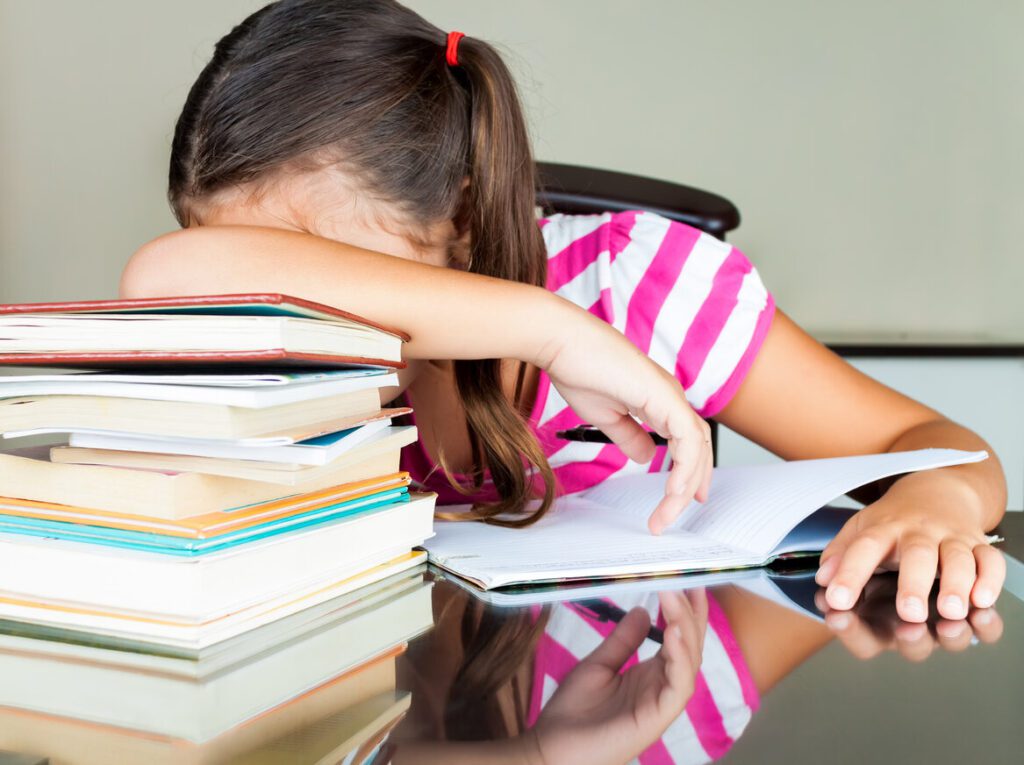

“All work and no play make Jack a dull boy,” the famous saying holds for every child. It would be best if you gave children time to unwind. The practice in most parts of the world today in schools is the gradual emphasis on innovative learning. Most of the time, this occurs at the expense of the child’s psychomotor skills. Schools, not just in developing nations but also in developed ones, tend to emphasize computer skills, laboratory experiments, and several other activities geared towards improving the child’s mind without taking cognizance of the child’s need for play.
When a parent emphasizes reading and studying and deprives a child of time to play to instill good discipline, it is clear from such a scenario that discipline has gone overboard. In the words of Mark Wahlberg, the movie actor, “There’s nothing like seeing the smile on my kids’ faces. Laughing together. Playing. It’s the best.” You should seek to strike a balance in this area of your kid’s lives. As much as we want them to work and achieve goals, they must also relax and play.
Where do We Go from Here?


Discipline can go overboard in so many ways, as stipulated in this piece. Yelling at children most of the time before you get your message across to them is part of this. It is a dysfunctional way of instilling discipline. It shows that things have gone wrong and that the parent lacks the capacity for good parenting. Such a parent must develop how to approach parenting (NB. The piece you are reading is an excellent inception point for such erudition).
“Discipline is the refining fire by which talent becomes ability.” — Roy L. Smith.
Hence, a parent must establish the qualities of genuine and sincere affection, sympathy, and empathy for their kid and should be able to know when to bring discipline into the equation as a measure to guide their ward. Learning these qualities is not automatic. It requires parents to become intentional learners. All pride must bow before the due diligence of patient scholarship. Don’t be that parent that claims to know everything even in the face of apparent ignorance of being in the wrong. Be teachable. Remember, the inculcation of the said positive qualities above must be timeous.


Part of the things to be learned will be how to listen effectively to your children, communicate with them, discipline, and overlook certain behaviors. Pointing out all the flaws of a child is a wrong approach to parenting. No one wants to be a victim of a demeaning barrage, not even children. They’re humans, and even if they are young and lack experience, they have emotions and feelings that require validation. Hence, parents must go the extra mile in learning when to take a chill pill when disciplining their kids. You don’t want to become an abuser. It would be best if you learned patience when raising your children. Kids will be kids.
“If you bungle raising your children, I don’t think whatever else you do matters very much.” — Jackie Kennedy.
If their parents remind them constantly of the things, they do wrong, then that’s a problem. The parent needs to seek a solution instead of passing the blame to their wards continually. It isn’t the child’s fault that a parent cannot control their anger or tantrums. Over time, children will see a parent who yells at them much of the time as a weak and insensitive parent. They may not voice this opinion to their parents but do this inward, a seed of bitterness sown. In the long run, they probably may lose trust in that parent and possibly, respect.


We cannot completely rule out discipline; doing so is prepping the societies that we live in for moral decay and dissolution. However, we cannot approach discipline with ignorance. The Holy Writ establishes that “The Lord corrects those he loves.”1 In the same light, we must teach, guide, and correct our wards from a place of love. We must “discipline our children while they are young to learn. If you don’t, you are helping them destroy themselves.”2 You would be doing yourself a tremendous disservice if you shun discipline completely.
“Discipline is the hidden ingredient that turns nobodies into somebodies.” — Unknown Author.
We must approach discipline in positive parenting with wisdom and caution. H. Ross Perot once said that “If you have but one gift to give your children, let it be discipline.” It may be a gift and tool that helps us in giving guidance to our kids. However, we must watch ourselves so that we don’t go overboard as it negatively affects child development. Parents must be mindful of this aspect of raising their kids. We must do everything in moderation, even discipline.
Reference
[1]. Proverbs 3:12. [2]. Proverbs 19:18.
Lifestyle
Let’s Raise Our Children Right
Children are our heritage. How we choose to raise them will define who they become when they grow. Children are our reflection. We need to become who we want our children to become.


The way we treat and bring up our children today will eventually frame them into what they will become tomorrow. If they will become saints or monsters, it is entirely up to you as a parent. The parent begins to lay the foundation stones of who their children eventually become. People who have kids, parents are laden with the responsibility of ensuring that their children are not misguided or led astray by the ever-present vices in our societies. Remember that today’s children are on the path to become either the leaders or the villains of tomorrow, depending on the route you tow as a parent to bring them up today; so, we must take adequate care to bring them up the right way. As hard as parenting may be, choosing the right child-upbringing path to take is therefore crucial. The question to any parent that is reading this article today is, “What path do I want my child to go down on when they become adults? The right path or the bad path of life?” You decide.
“Teach a child to choose the right path, and when he is older, he will remain upon it.” — Proverbs 22:6, The Bible, The Living Bible (TLB) Translation.
Children are like sponges—they soak up what we pour on them. They are quick to assimilate and retain what they hear and see. Children are swift to imbibe and clutch unto the behaviors surrounding them—first from their parents and then from the society at large. If all that the child sees are positive, they will be sure that they will absorb the positive characters that characterize the ambiance they live in. On the flip side of the coin, if all that the child sees is negative, they will imbibe their negative influences. They become a chip off the block from which they are hewn. They reflect the image of what they are exposed to; hence, this lies the opportunity for us to frame them up in the correct way that they need to go. It is the parents’ responsibility to do so, and trust me; it is also an investment in hope. It is a price that you must pay in other to see your children become who they were meant to mature into from a positive light. Are you willing to pay the price for a good upbringing for your child? You decide.


Children have a delicate mind. They have a fragile mind, and we need to treat them as such. The same way you are careful with an egg not to crack it, you must be cautious with your child or children so that you won’t shatter him/her/them likewise. Don’t make them become a Humpty Dumpty who sat on the wall of life only to end up as a cracked baby with an uncertain future that needs to be pieced together like a jigsaw puzzle. In other words, children learn very quickly from the influences at home and the social circles that they are part of. Today, the virtual world is now part of that social circle. Children are impacted by what they watch on television. Children are guided by what they see in the virtual world through the video and virtual games that they play and the videos that they see. Please talk about the world of the numerous social media (e.g., Facebook, Twitter, Instagram, Google Plus, etc.) outlets and their impact. Talk about child predators or pedophiles who use these virtual outlets to prey on innocent children out there? It can get scary—trust me. Their minds start getting shaped by all they see—good things influence them positively, and bad things negatively impact them. What is the primary influence of your child today? Do you even know? Consider this carefully and be aware of the reality.
“Love and freedom are vital to the creation and upbringing of a child.” — Sylvia Pankhurst.
Our children are our future. It is a responsibility for parents to raise their children in the right way. To do so, we must ensure that we are doing the things that are worthy of emulation. Your kids imitate you. They are masters in the art of mimicry. What you project is what they copy—call them copycats, if you will. What you tolerate as you lay the foundations of their lives is what they eventually become. Are your kids copying all the wrong things from you, then it may be time for you to make a U-turn for the better for their future-sake. This article talks to the man in the mirror, takes a very close look at yourself and makes a change. Do the right thing. I stumbled over this quotation by an Unknown Author as I was reading a book, and it was impressed on me to share it with all. I believe that anyone who is a parent needs to review this quotation and assess how they are raising their kids—look in this mirror! Is it time for you to change your way? It really summarizes the different ways the upbringing of a child could go—both good and bad. Here is the quotation, it says:


If a child lives with criticism,
he learns to condemn.
If a child lives with hostility,
he learns to fight.
If a child lives with fear,
he learns to be apprehensive.
If a child lives with pity,
he learns to feel sorry for himself.
If a child lives with jealousy,
he learns to feel guilty.
If a child lives with encouragement,
he learns to be self-confident.
If a child lives with tolerance,
he learns to be patient.
If a child lives with praise,
he learns to be appreciative.
If a child lives with acceptance,
he learns to love.
If a child lives with approval,
he learns to like himself.
If a child lives with recognition,
he learns to have a goal.
If a child lives with fairness,
he learns what justice is.
If a child lives with honesty,
he learns what truth is.
If a child lives with sincerity,
he learns to have faith in himself and
those around him.
If a child lives with love,
he learns that the world is
a wonderful place to live in.
Unknown Author


The quotation above is long; however, it is deep, and it says it all. There is no need to rehearse everything that it had to say; it’s clear as crystal. The truth is that if you choose to be negligent of raising your children correctly, be sure that as they will grow up negligent. They will be unconcerned about living or behaving right—they will go off the tangent to a negative path, to the dark side of the force, towards bad behavior. If you refuse to raise your kids right, the society that we live in may train them for you, and you may not be proud of the product that ensues from such an upbringing. The communities that we live in have the good, the bad, and the ugly. However, why take the chance and neglect raising your kids right within the confines of your own home? Why leave the society to solely raise them via the schools they go to or the company they keep? What if they choose to shun the good that the community offers and embrace the bad and the ugly? Who loses? You do, and eventually, they do. Don’t let your kids grow up to become society’s worst nightmare. Care for your child. Train him or her up correctly. Be diligent to instill in them the morals that will make them become the model citizen of tomorrow.
Become the example which you wish to see—that is the precise summary of the quotation above. Become the example that you crave your child to emulate, and they will soak that character up entirely. If you want a kid that loves God, then become a worshipper of God. If you want a kid that grows up to become book smart, then become book smart yourself. If you want a kid that grows up to become street smart, then become street smart yourself. If you want an industrious kid, then become industrious yourself. If you want a kid that is organized, then become organized yourself. They will mimic you—they will emulate you. On the split end of the spectrum, if you want a kid that hates their neighbor, then hate your neighbor—become racist if you will and see them tow the same path too. If you want your kid to become an angry person, then be sure to display anger at every opportunity you have around them. If you want your kid to become an alcoholic when they grow up eventually, then become the champion of the bottle yourself. If you want your kid to become a chronic smoker, then become a chronic smoker yourself to the point that a chimney has got nothing on you. If you want your child to become a drug addict, a junkie, then keep using illicit drugs around them. If you want your kids to curse like a sailor—no offense to the Navy, I love the Navy—then become a curse bucket yourself and see your dreams come true. If you want your kids to be violent, then become violent. I can go on and on. The bottom line is that kids are mirrors—they reflect the image that they see—positive or negative. They become the example that is before them. Change your ways. Turn a new leaf, live a new life. Your kids will benefit more as they emulate a new you. Are you willing to become the example that you want your kids to see and become? You decide.


Parents, you are a custodian of purpose. Every human being is an embodiment of purpose. We were all created for a specific and unique purpose. Out of the 7.7 billion people existing on the globe today, everyone is here on a distinct mission. Every one is made by design—no one is a mistake. If you understand why a thing is made, you will be able to channel the device to accomplish that right purpose for its design. You were made for a reason. Do you know it? If not, ask the Maker, God, and He will guide you to your purpose. Make it a point of duty to understand your purpose. This will help guide you in seeking to understand the purpose of your children. Each of our children was made for some individual reason or purpose. Your child is a person with a basis for being, existing for a purpose. Understand their purpose, and you will be able to guide them better. Understand their purpose, and you will be able to raise them right. Remember, you are a custodian of purpose. You are responsible for your children. Make some effort to understand them. Try to study them. Try your very best to raise them right. Learn about them so that you can guide them better. Ask their Maker, and the Maker will enlighten you on the reason why He has made them. Do you really know your kids? Think about this for a minute.
“I had a really wonderful upbringing. We were a tight family. It was wonderful to grow up with so many siblings. We were all just a year or two apart, and we were always so supportive of each other. I learned everything from my older brother and sister and taught it to my younger sisters.” — Joaquin Phoenix.
Are you a father? Are you a mother? How are you bringing up your kids? Are you the example that you would like to see in your children? Are you currently a bad example for your kid(s)? Are you willing to make a change for the better? Do you portray the right image that you want your kid(s) to reflect? Remember, they are mirrors and will only reflect the image that is before them. You are before them—you are that image that they reflect. What is in you is the foundation of the image you portray. If you are full of darkness, then you will manifest darkness and evil. If you are full of light, then you will manifest light. Emmanuel is Light—my belief, my opinion. Think about these things and do well to do what is right. It is your primary responsibility to raise your children right. Why bring them into the world if you intend or deliberately choose to do a mediocre job raising them? To do so is to punish that child. To do so is an act of wickedness to the child first and humanity. To neglect your duty to raise your child right is gross oversight worthy of reprimand—the hallmark of irresponsibility. Raising your child or children is an investment. It can be an investment in hope or investment in nothing. As an investment in hope, your child will have a fighting chance in becoming a citizen of worth that you and the society would be proud of. As an investment in nothing, your child may shift towards becoming the absolute dread of the society—a child that brings shame and causes sorrow, a child that causes the heart to bleed. Raising your kid(s) right starts from the confines of the nuclear family. Decide today to turn a new leaf and raise them right—you will be glad you did.





























